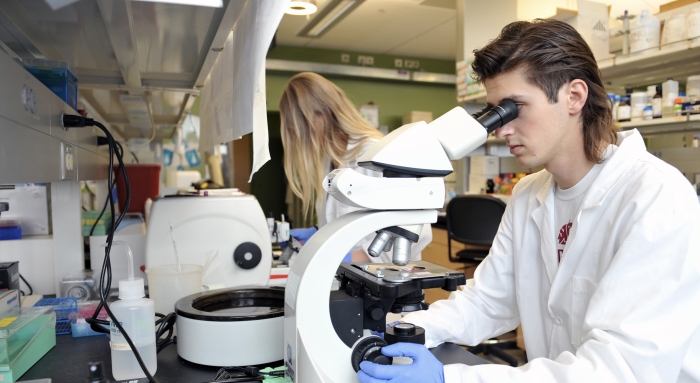 courtesy: Washington State University
courtesy: Washington State University
- Written by Moderator
WSU-inspired national gene-editing task force begins work
FeaturedWith the world’s population projected to reach ~10 billion in 30 years, scientists are working to use genetic technologies to address future food security problems. They have had some success, such as using CRISPR-Cas9 gene editing process to develop more disease-resistant pigs, but the advance is useless if the pigs cannot be brought to market and if no one will eat their bacon.
Jon Oatley, professor and director of WSU’s Center for Reproductive Biology, recognized early on that using genetic technologies on food animals presents social and ethical challenges that cannot be solved through research alone. In 2020, Oatley brought forward the idea of gathering experts to tackle these issues, and this week the national task force on gene-editing in livestock had its first meeting. Researchers estimate that agricultural output will need to increase by 60% to keep up with the population growth in the next 30 years, while at the same time dealing with shrinking availability of critical resources including water and grazing lands. WSU scientists are already at work on these problems with the support of the Functional Genomics Initiative (FGI), a five-year investment from the university totaling nearly $5 million. Starting in 2016 as part of the Grand Challenges, the Initiative has helped build core infrastructure and a cohort of faculty to drive research in gene editing technology as well as address social and ethical approaches to gene-enhanced food animals.
“The potential for gene editing to dramatically boost food security globally and reduce the burden on natural resources is enormous, but it must be done carefully and ethically,” said Peter McPherson, president of the Association of Public Land Grant Universities, which established the task force together with the Association of American Veterinary Medical Colleges.
The research results are published in this article.
Read the full article at WSU News.
Visible Legacy Comment
Gene-editing can be used to improve animals’ disease resistance, making them healthier and reducing the need for antibiotics, which can lead to other problems such as antibiotic resistant strains of bacteria. It can improve animal welfare by editing out undesirable traits, such as horns on cattle that are currently manually removed. Better, healthier livestock also means more and better food for people, but the technology can also be used to directly bolster animal growth and reproduction performance to improve the food supply, which is expected to be a critical need in the coming decades. The national task force is also one of the outcomes of the FGI investment. Dr. Dori Borjesson, the new dean of WSU’s College of Veterinary Medicine. “The Functional Genomics Initiative has helped place WSU at the forefront of this field." Potential Corporate Partners can explore Dr Oatley's research ecosystem through the Navigator map below.
Additional Info
-
Navigator:
 Explore the map in Navigator
Explore the map in Navigator - Widget:
- Caption: WSU Oatley ecosystem
Related items
- The future of health care is in our cells
- Federal funding will help WSU professor develop technology to recover rare earth elements
- Unlocking the brain: Peptide-guided nanoparticles deliver mRNA to neurons
- Scientists Get to the Bottom of COVID’s Worst Pediatric Complication
- Multi-Tasking Wearable Continuously Monitors Glucose, Alcohol, and Lactate
